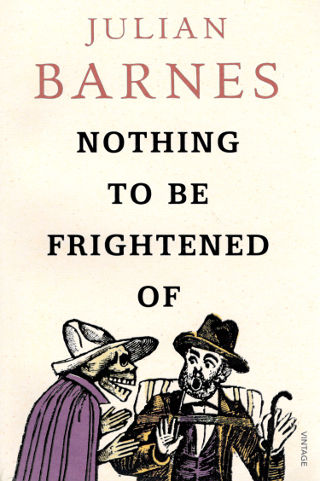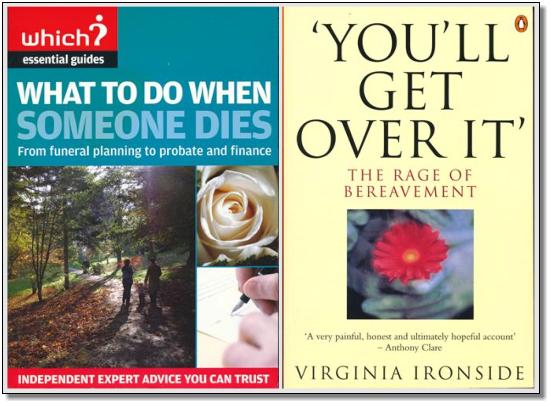Picking up the pieces
I'm very glad Christa missed the uniquely-private hell of bereavement as I hate the thought of her going through the anguish I did. I have Viktor Frankl to thank for that simple but deep insight from his book "Man's search for meaning". I'm sure people think "He must be over it by now, surely?" Yes and no! For me and Peter nothing will ever be quite the same again; we have both1 had to learn a new "normal" and navigate accordingly. But, considerably further along the pothole-strewn highway of this journey called Life, I've finally gained distance, perspective, and (I hope) some wisdom.
Death has just one glorious merit. It ends suffering when suffering needs to end.
Bereavement? No merit what-so-bloody-ever. Not one. Not even close. Zip. Diddley squat. Nada. Rien. It's just a painful and heavy layer of hell and hard work deposited, to varying degree, directly on the raw skin of those of us "left behind". We have to try to pick up the pieces of our shattered lives and "carry on" (whatever the heck that means) when all we really want is for it to stop... Just stop. For any and all values of "it".
If you're reading this seeking comfort or reassurance let me state, for the record:
Time does erode the initial agony. You probably don't believe that. How do I know? Easy. I didn't believe it myself.
Letting go of the pain, inch by inch, seemed a betrayal of both Christa and the misery it is oh so tempting to wrap yourself in. (And, boy, would she have ripped my head off if she had ever heard me voice such an insane thought!) But the sun will shine (more and more) and there will even be the occasional patch of blue sky. That I can promise.
The bereavement "process"
You don't actually ever "get over" the death of a partner like Christa. But, as time ticks relentlessly along, and further life (and death) experiences accumulate along the way, one morning you wake up and realise you can live with it.2 Of course, the sooner that morning arrives, the sooner you can get on with the rest of your life. I fully understand that now... but, believe me, it took a while to reach3 this point.
This comment to a Guardian article rang particularly true:
For those who haven't experienced deep grief, I would just say that it comes in waves — huge at first and overwhelming but over time (months and years maybe) the waves get smaller and the time between them greater. We just have to surf them.
Actually, Charlotte Raven put the whole matter of "recovery" very well in rather a different context. (She was reviewing [in "New Statesman" in March 2002] the book by Elizabeth ["Prozac Nation"] Wurtzel on her addiction woes — for all I know, every bit as miserable a horror as bereavement.)
The curious alchemy of recovery can work only when you're not watching out for it. If you check on it every five minutes, it will curdle unpleasantly; if you don't, it will reward you with days that unaccountably seem to fold in all the right places.
An observation: There is a period of several weeks (months? years??!) where denial and occasional bouts of futile anger are rather too much to the fore. The Universe rolls on unaffected. Predictably, the company of good friends works far better than good Scotch during this roller coaster ride. And it is a roller coaster — a form of transport I have always hated.
Grief, recollected...
... in tranquility, or something like that. I am not, today, the chap I was in (and for some [considerable] time after) November 2007. Nonetheless, I can fully relate to this, from Julian Barnes4 considering the aftermath of the death of his wife. Source and snippet:
"What is taken away is greater than the sum of what was there," he writes. "This may not be mathematically possible; but it is emotionally possible."...
The best response [to his bereavement] was in a letter from a friend: "The thing is," she wrote, "nature is so exact, it hurts exactly as much as it is worth, so in a way one relishes the pain. If it
didn't matter, it wouldn't matter." It is a line he himself now uses, "whenever, as I seem to have to do a lot nowadays, I write letters of condolence. It's not overtly a consoling line; but it is true.
A truth like that is more consoling than 'I'm sure she's looking down on us from above' or whatever."
His 2008 memoir turned out to be very well worth reading:

Here's Penelope Lively, at 80, writing in the Guardian in October 2013:
We have each known that grim rite of passage, have engaged with grief and loss, and have not exactly emerged but found a way of living after and beyond. It is an entirely changed life, for anyone who has been in a long marriage — 41 years, for me: alone in bed, alone most of the time, without that presence towards which you turned for advice, reassurance, with whom you shared the good news and the bad. Every decision now taken alone; no one to defuse anxieties. And a thoroughly commonplace experience — everywhere, always — so get on with it and don't behave as though you are uniquely afflicted. I didn't tell myself that at the time, and I doubt if it would have helped if I had, but it is what I have come — not so much to feel as to understand.
Practical advice: Virginia Ironside's book "You'll get over it — the rage of bereavement" (as she says, you won't, but let that pass) is fantastic, and (for deep insight into the emotional turmoil) much the best of the dozen or so I've now read or skimmed in bookshops. For the more nitty-gritty side of the business, "Which?" publishes a guide called, succinctly, "What to do when someone dies".

Virginia's 100% accurate conclusion?
The very best that most of us can do is to live with it. On and on and on and on... until we die ourselves, when the feelings of pain, anger and confusion will be handed on, a legacy of truth, for someone else to bear.
In my case, I both hope and fear, to my son. Sorry about that, Peter!
A truism: 'Tis better to have loved and lost... than never (etc etc).